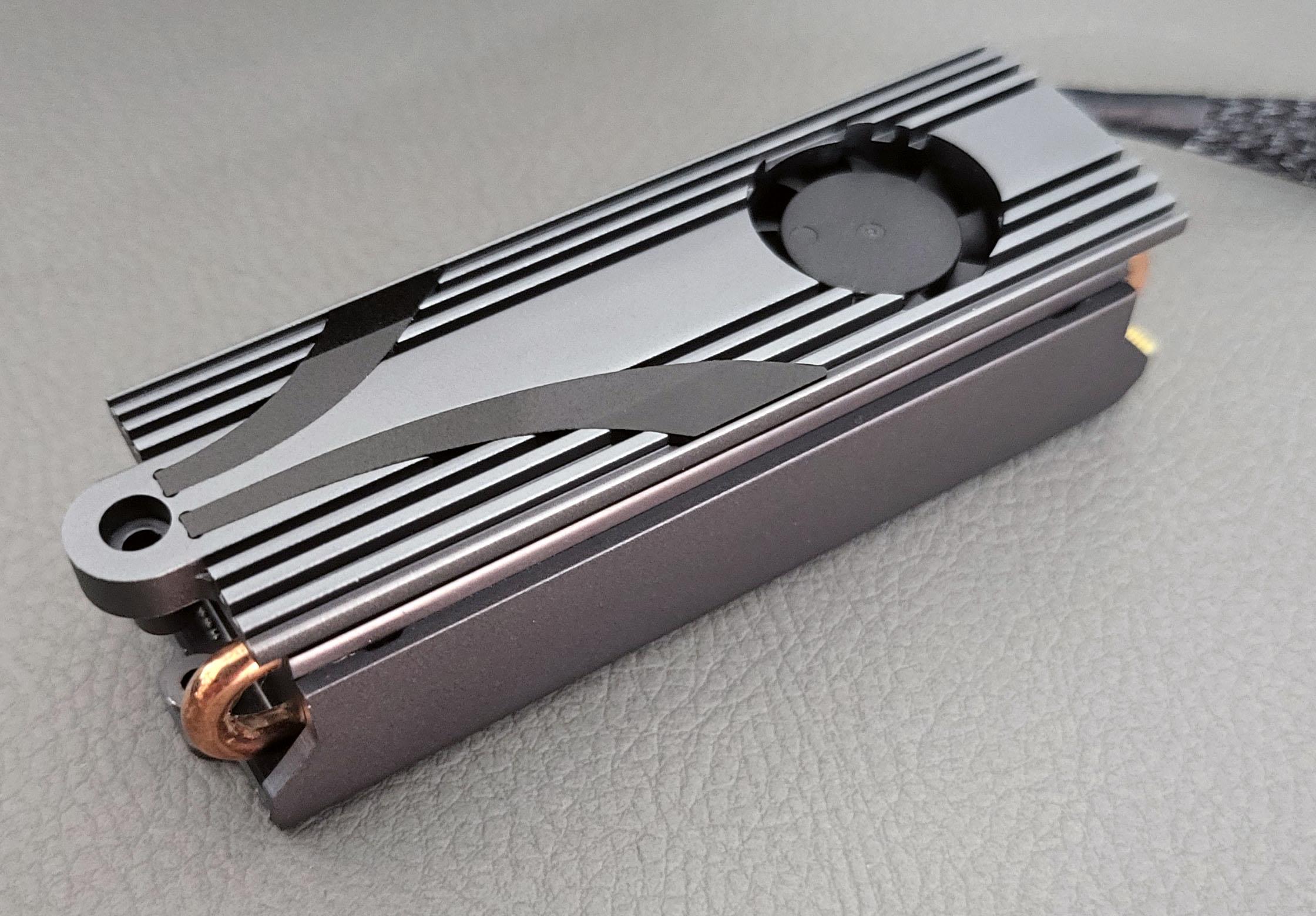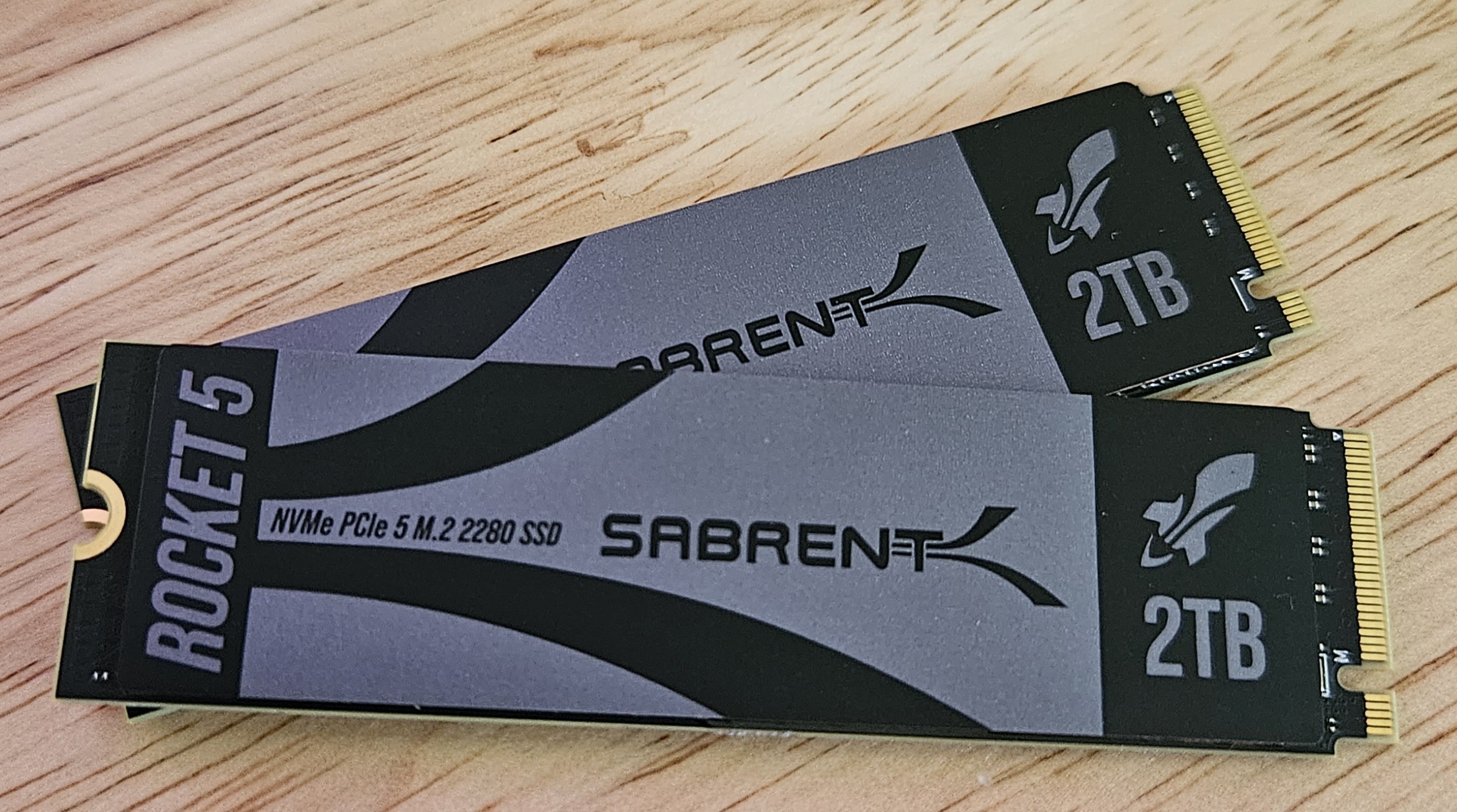Sabrent's rocket-fast Rocket 5 SSDs are available for pre-order, starting at $190
One of the fastest SSDs around.

Sabrent has begun sales of its highly anticipated Rocket 5 solid state drives that promise to become some of the best SSDs available today. The drives have the PCIe 5.0 x4 interface and boast a sequential read speed of up to 14 GB/s, which is in line with other top-end SSDs. However, performance comes at a cost.
"You are ready for something new," a statement by Sabrent reads. "We are here to deliver. Our freshest, super-fast SSD, the Rocket 5, is finally here."
Sabrent's Rocket 5 is based on the Phison PS5026-E26 controller as well as Micron's 3D TLC NAND memory with a 2400 MT/s data transfer rate. The higher-end 2TB and 4TB drives are officially rated for an up to 14,000 MB/s sequential read speed as well as an up to 12,000 MB/s sequential write speed, along with a random read/write capability of 1.4 million IOPS. The 1 TB version has slightly reduced speeds — up to 13,000 MB/s and up to 9,500 MB/s — due to a lower degree of parallelism, yet it will still outperform many of the currently available drives that use a PCIe Gen5 x4 interface.
Speaking of contemporary high-end PCIe Gen5 SSDs that use the Phison PS5026-E26 controller, the vast majority of them typically achieve maximum sequential read speeds ranging from 10 GB/s to 12 GB/s, with the speed varying based on the type of 3D NAND paired with the potent controller. Initially, these drives were equipped with 1600 MT/s 3D NAND, but more recent versions have been upgraded to 2000 MT/s 3D NAND. Now that 2400 MT/s 3D NAND is available, Sabrent can release its Rocket 5 with up to 14,000 MB/s sequential write speed. To make this SSD possible, Sabrent has collaborated with Phison to maximize the performance of the controller and come close to fully saturating the nearly 16GB/s bandwidth of a PCIe 5.0 x4 interface.
Sabrent believes that the Sabrent Rocket 5 drives will operate smoothly with heatsinks provided by high-end motherboards. For systems that lack pre-installed heatsinks for some reason, Sabrent will also include a relatively large active cooling solution with the drive.
For obvious reasons, Sabrent's Rocket 5 is a quite expensive product. The 1TB version is priced at $190, the 2TB model carries a $340 price tag, and a 4TB costs $730.
Get Tom's Hardware's best news and in-depth reviews, straight to your inbox.

Anton Shilov is a contributing writer at Tom’s Hardware. Over the past couple of decades, he has covered everything from CPUs and GPUs to supercomputers and from modern process technologies and latest fab tools to high-tech industry trends.
-
dmitche31958 Silly question but nobody ever reports on this as it is always assumed. But how well do PCI 5.0 devices function with a PCI 4 interface? I have always assumed that they would max. out the PCI 4 interface. Is that the case or could it be that they don't perform as well as a device designed for the PCI 4 interface. I feel silly asking this but the older I get the more I don't believe in obvious things.Reply -
Eximo Depends on the load on the drive. But generally, yes, a PCIe 5.0 4x drive will max out a PCIe 4.0 4x connection if it can reach speeds above that. But outside of benchmarks you aren't likely to see this very often anyway and depending on drive temperature, may not be sustainable for long anyway.Reply -
WildcatDave71 Who cares how fast this thing is. Whatever you do, do not give a penny to this company. I have had two of their NVMe drives fail within the first year of ownership. After multiple attempts on support forums and directly to them, they have ignored every attempt by me to RMA them. Their products are garbage and their support is even worse. Do yourself a favor and don't support a lousy company like this, buy from somebody else.Reply
